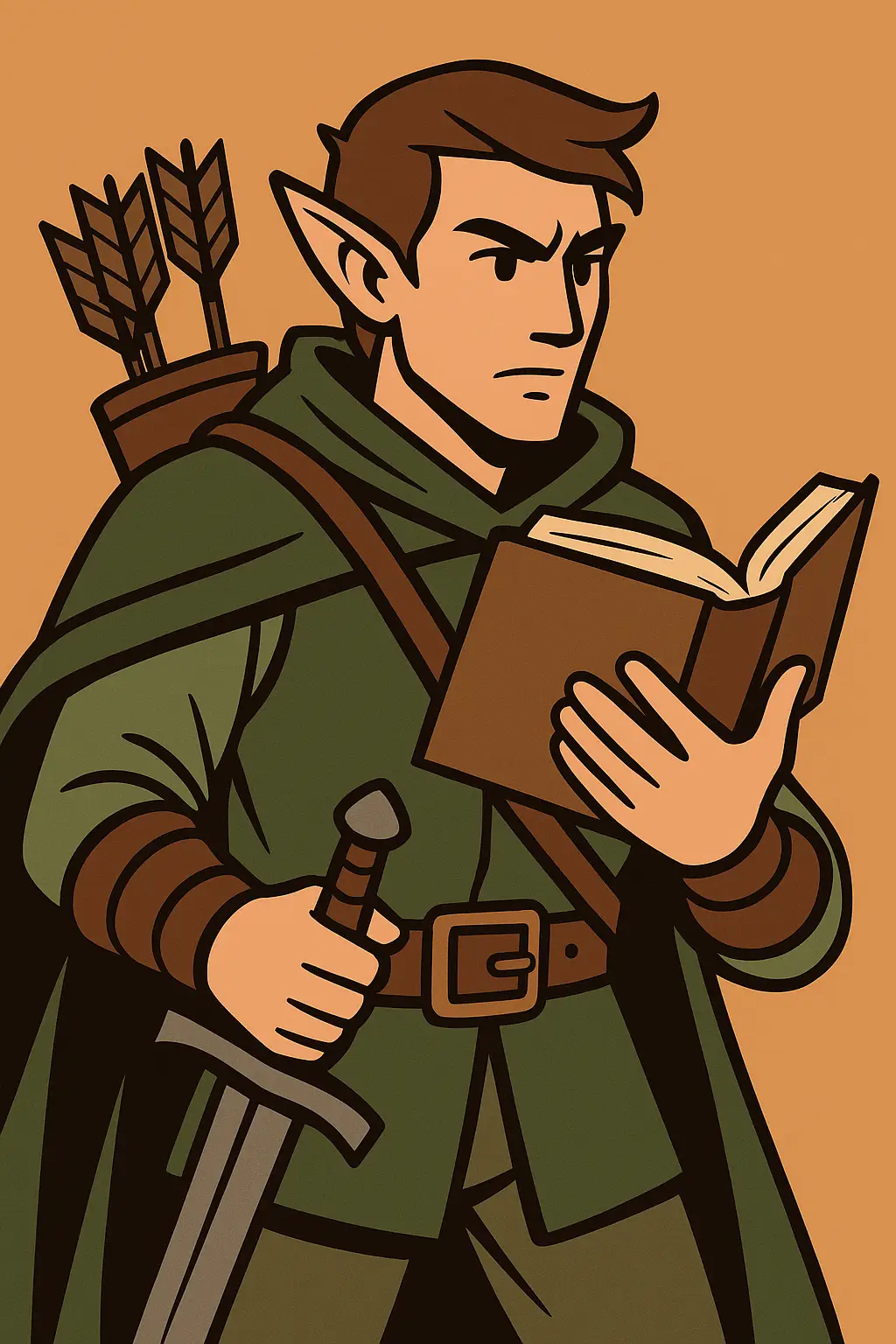When the barriers of the multiverse need to be broken, reshaped, or rewritten, it is the Wizard who dares—and often succeeds.
In the Dungeons & Dragons 2024 rules update, Wizards of the Coast has treated the Wizard class with both care and caution: refining its spellcasting, tweaking its iconic Schools of Magic, and preserving the Wizard’s identity as the purest arcane master without tipping the delicate balance of the game.
Today at RPGInquisitor, we open the grimoires and study exactly how Wizards have changed in 2024—what’s been enhanced, what’s been lost, and why this may be the most playable version of the Wizard yet.
✨ Core Mechanical Changes to the Wizard
1. Spellcasting (Now Slightly Simpler and Smarter)
- Wizards now prepare spells directly from a limited Prepared Spells List rather than preparing any spell they know.
- The number of spells prepared is now equal to your Intelligence modifier + your Wizard level — a clearer, more scalable mechanic.
2. Arcane Recovery (Refined)
- No longer restricted to short rest timing.
- Arcane Recovery is now usable once per long rest, regaining half your level in spell slots (rounded down).
- Result: Simpler resource management without long-rest abuse.
3. Ritual Casting (Expanded)
- Ritual Casting remains, but the Ritual Tag now appears more consistently across key Wizard spells.
- Wizards are among the few classes in 2024 with “free ritual casting” without needing the spell prepared.
4. Scholarly Focus (New Early Choice)
- At Level 2, Wizards now pick a Scholarly Focus that shapes their magical training:
- Spell Specialist (damage buffs)
- Arcane Scholar (ritual and utility mastery)
- Versatile Mage (balanced spells known/spells prepared)
This makes Wizards feel distinct much earlier in a campaign—solving a common complaint that they “start bland.”
📜 Major Changes to Wizard Subclasses (Schools of Magic)
In the 2024 update, Wizard subclasses (traditionally called Schools) have been tightened up and rebalanced. Here’s how:
🧪 School of Evocation (The Blasters)
Theme: Raw destructive power, energy manipulation.
Changes:
- Sculpt Spells: Still exists but is easier to apply dynamically. When casting AoE spells like Fireball, allies automatically dodge without needing as much positioning finesse.
- Potent Cantrip: Buffed to apply bonus damage scaling even more effectively at mid and high levels.
Result: Evocation Wizards can now truly unleash their inner artillery without guilt.
🔥 RPGInquisitor Verdict:
“The go-to for players who love spell impact. Now deadlier and less frustrating for your party.”
✨ School of Illusion (The Tricksters)
Theme: Reality manipulation through mind and perception.
Changes:
- Improved Minor Illusion: Casting Minor Illusion now lets you combine sound and image by default—no subclass feature needed.
- Illusory Reality (Buffed): At higher levels, you can make illusions real for a brief time (e.g., creating real bridges, barriers, or cages).
Result: Illusion Wizards feel more powerful earlier and scale into delightful creative madness later.
🎭 RPGInquisitor Verdict:
“Perfect for players who think cleverness should be more powerful than brute strength.”
🛡️ School of Abjuration (The Wards)
Theme: Protection, banishment, magical defense.
Changes:
- Arcane Ward: Automatically scales better with level and Intelligence, absorbing more damage reliably.
- Projected Ward: Improved synergy with protective spells and reaction timing.
Result: Abjuration Wizards are now viable tank-adjacents in caster form.
🛡️ RPGInquisitor Verdict:
“If you like standing between your friends and annihilation, Abjuration has never felt better.”
📚 Spell List & Ritual Changes
1. Unified “Arcane” Spell List
- Instead of Wizards having a separate spellbook entirely unique to them, they now pull from the broader Arcane category (shared with Sorcerers, Bards, and some Warlocks).
- However, Wizards still specialize by focusing on specific “spell schools” and rituals others can’t easily access.
2. Ritual Casting More Valuable
- Wizards now access more Ritual Tag spells across levels—like Detect Magic, Identify, Alarm, Leomund’s Tiny Hut, and more.
- Result: Wizards dominate out-of-combat magic like never before.
⚡ Gameplay Shifts: What This Means at the Table
✔️ Simpler day-to-day play:
- No longer tracking weird preparation rules.
- Arcane Recovery and Ritual Casting are intuitive, accessible.
✔️ Stronger scaling:
- Scholars can specialize earlier without “dead levels.”
- Cantrips and low-level spells remain useful longer.
✔️ Still the King of Magic:
- Sorcerers have innate flair.
- Warlocks have pacts.
- Wizards still have everything—and more ways to show it off.
Recommendations for 2024 Wizard Players
| Playstyle | Best Scholarly Focus / Subclass | Notes |
|---|---|---|
| Combat Blaster | Spell Specialist + Evocation | Build for devastation |
| Creative Trickster | Versatile Mage + Illusion | Rulebreaking options |
| Party Supporter | Arcane Scholar + Abjuration | Protectors and healers |
| Utility Wizard | Arcane Scholar + Any School | Ritual mastery |
Final Verdict: Wizards in 2024
The D&D 2024 Wizard is:
- Smarter to manage
- More thematic in progression
- Still terrifyingly powerful at full potential
Without breaking tradition, Wizards of the Coast has made the Wizard class less fragile to play and more satisfying to master—a perfect evolution for new players and veterans alike.

🧙♂️ Ready to Master Magic?
Start your arcane journey with the new Player’s Handbook 2024
Stay tuned for:
- ✨ “Top 10 Must-Prepare Spells for Wizards (By Level)”
- 📜 “School of Illusion Deep Dive: Power Through Creativity”
- ⚡ “Ultimate Wizard Feat Guide: What to Take and What to Skip”


Hey There. I found your weblog using msn. This is an extremely smartly written article.
I will make sure to bookmark it and return to learn more of your
useful information. Thank you for the post.
I’ll certainly comeback.
Also visit my blog :: y2 mate converter
I didn’t expect to laugh so much! 강남호스트바 totally lifted my mood.